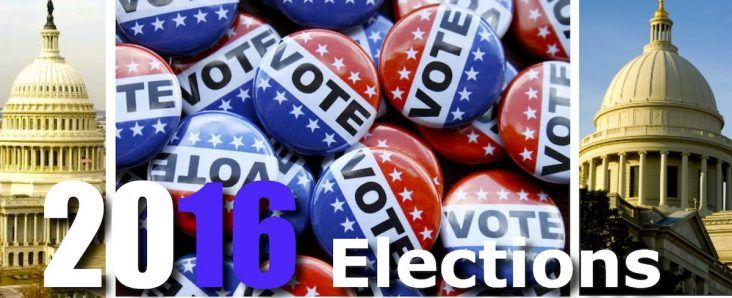Eldridge opposes Trans-Pacific Partnership deal, Sen. Boozman undecided
by March 18, 2016 2:03 pm 481 views

Conner Eldridge, the Democratic candidate for U.S. Senate, announced on Friday (March 18) his opposition to the Trans-Pacific Partnership.
The TPP is a 12-member rule-writing agreement negotiated by the Obama administration. Signatories in addition to the United States are Canada, Mexico, Australia, Japan, Malaysia, Peru, Vietnam, Chile, Brunei, Singapore and New Zealand. It was negotiated by the Obama administration but still must be approved by Congress.
Eldridge said the TPP is a bad deal for Arkansas and for the country. He said trade that leads to increased exports through fair, enforced provisions helps the economy, but the TPP does not achieve that goal. He said it does not do enough to protect workers and that it doesn’t offer protections against currency manipulation, which countries could use as a tool for getting around lowering tariffs. He said the deal is bad for Arkansas farmers and that it could lead to companies moving jobs overseas where workers have lower wages.
He said he had visited on Thursday the closed Whirlpool plant in Fort Smith, which shut down in 2012 and moved operations to Mexico.
“There are real consequences like that to bad trade deals, and this is one of them,” he said. “And we’ve got to make sure that any trade that we have is fair because workers in Arkansas, working people in Arkansas can compete with anybody, but they’ve got to have a fair playing field, and this deal does not meet that standard.”
Eldridge’s opponent, U.S. Sen. John Boozman, voted last year along with 59 other mostly Republican senators to give President Barack Obama fast-track authority on the deal, meaning Obama can send the agreement to Congress for an up-or-down vote without amendments. The House also approved fast-track authority last year.
Boozman’s spokesman, Patrick Creamer, said the senator has not made a decision on the agreement itself.
The treaty has the support of the Arkansas State Chamber of Commerce, said its president and CEO, Randy Zook. Zook wrote in an email, “We support this effort to improve our trade opportunities with one of the world’s fastest growing economic centers. No trade deal is perfect, but this one improves our access to important markets and increases pressure on the Pacific Rim countries to lower barriers to American companies’ sales efforts in the region. We can compete with any country if the rules are fair. TPP is a positive step in the right direction.”
Arkansas Farm Bureau Ron Anderson, director of public relations, said the federation is still considering its stance on the issue.
The United States Trade Representative (USTR) says on its website that the agreement will help U.S. businesses compete by eliminating 18,000 tariffs on American-made products. Those tariffs are as high as 70% on U.S. automotive products and 59% on manufactured products. Tariffs as high as 40% on poultry products, 35% on soybeans and 40% on fruit exports would be removed. Also, the United States would be in a leadership position in writing the rules for Pacific Rim trade. China is not part of the agreement.
The USTR says the agreement contains the strongest worker and environmental protections of any trade agreement in history, that it disciplines state-owned enterprises that use government subsidies to compete unfairly, and that it takes steps to protect the digital economy.
The Citizens Trade Campaign, a coalition of unions, churches, environmental groups, and consumer advocacy groups, recently sent a letter to members of Congress urging them to oppose the trade act.
“The TPP would offshore more good-paying American jobs, lower wages in the jobs that are left and increase income inequality by forcing U.S. employers into closer competition with companies exploiting labor in countries like Vietnam, with workers legally paid less than 65 cents an hour, and Malaysia, where an estimated one third of workers in the country’s export-oriented electronics industry are the victims of human trafficking,” noted the Jan. 7 letter.
Frank Gilbert, the Libertarian Senate candidate, said he generally favors the agreement because he believes in free trade and because trading partners don’t go to war with each other. He said the TPP would also “check the aggressive nationalism of China.”
However, he expressed concern about the TPP being negotiated in secret and said Congress has “surrendered its ability to be a part of the process to make TPP a better treaty.”
“In spite of the concerns, and reserving the right to vote against it when the shroud of secrecy is lifted, I am in favor of the stated goals of the TPP and would vote for its approval,” he said.
